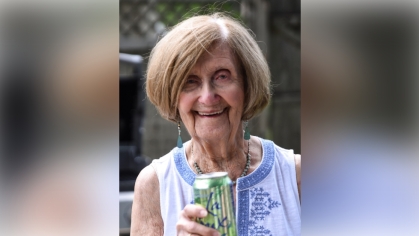Emmy Tiderington, PhD, LMSW, is an assistant professor in the School of Social Work and associate faculty at the Institute for Health, Health Care Policy, and Aging Research at Rutgers. Dr. Tiderington’s areas of expertise in homeless services research include the implementation and effectiveness of permanent supportive housing, Housing First and Moving On initiative service models, best practices for facilitating transitions out of homeless services, and mental health and substance abuse recovery in homeless populations.
Dr. Tiderington shares more about her recent research and the implications of her work.
What are you studying and why?
I study transitions from homeless services because, as a field, we know a great deal about how to get people into homeless services and how to keep them engaged in services. We know a lot less about how to help people successfully transition out of homeless services. This is particularly true in the case of people with complex needs like serious mental illness, substance abuse disorders, and chronic medical conditions. Over the past few decades, homeless service providers and researchers have worked hard to identify interventions that effectively keep these populations housed permanently and prevent returns to homelessness. And what they found was that time-unlimited supportive case management embedded into affordable housing, what is known as permanent supportive housing (PSH), keeps people housed over the long term. However, this service model is costly and there is evidence that not everyone wants to live in a specialized housing program for life. Eventually, people may no longer need the intensive support services that come along with PSH. They may just need the affordable housing piece. So, I’m interested in exploring how homeless services can be adapted to effectively facilitate transitions out of PSH for people who no longer need these intensive supports without exiting people back into homelessness.
How are you engaging with communities, or how will your work impact communities?
Because my research is directly informed by how homeless services currently operate and I want the findings from this work to meaningfully impact service delivery, I work closely with the provider community, as well as service recipients. Whether that means interviewing providers or recipients to get their views on services or disseminating my research findings to national provider audiences via the U.S. Department of Housing & Urban Development or international audiences through conferences and talks, I am always looking to maintain a connection between research and practice.
What are the implications of your work?
I think one of the most important implications of this body of work is that it shows that people can successfully move on from homeless services, including people who have experienced significant barriers to stable housing previously. We find in our research and in other studies of homeless service transitions that the vast majority of individuals leaving PSH are able to stay stably housed for at least two years. Obviously, longer follow-up studies are needed to determine whether this finding holds over time. But I think this preliminary evidence suggests that the field should be operating under the assumption that people with a serious mental illness, substance abuse disorder, or other serious health conditions can and do recover from these conditions and eventually may be able to live independent from housing service providers. As such, we should be designing services that adapt to meet individuals’ changing needs over time, instead of expecting people to adapt to one-size-fits-all service models by remaining in homeless services for life.



